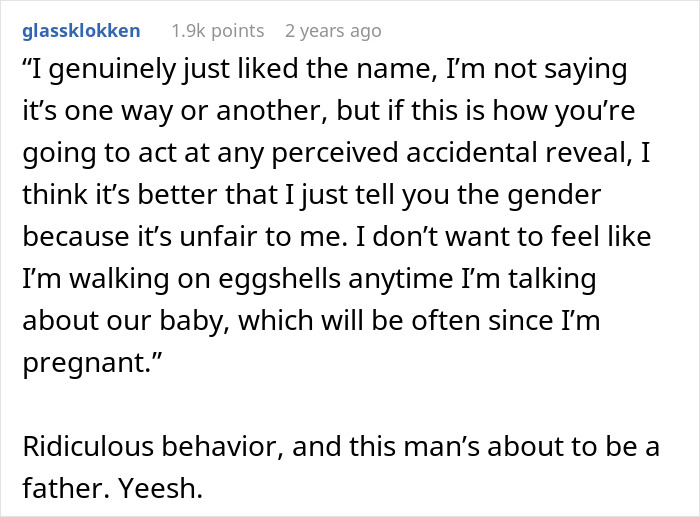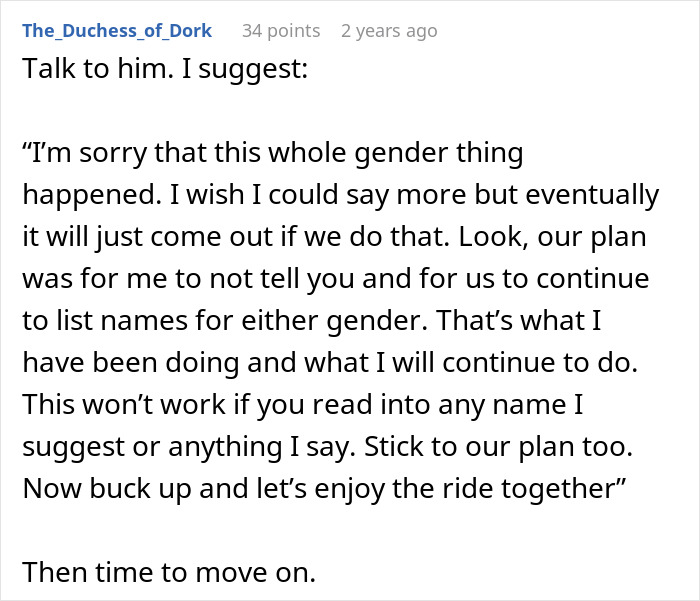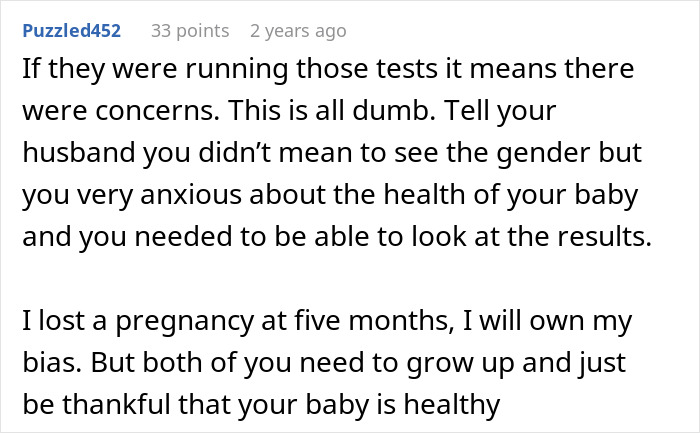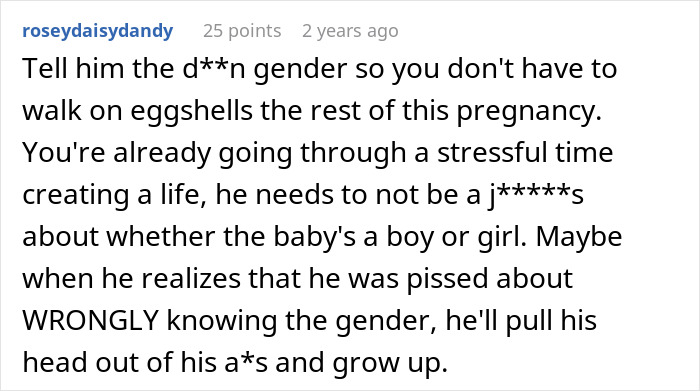Gender reveal parties may be popular among some parents. Yet others still want to keep their baby’s gender a secret until they’re born. According to Motherly, around 30-40% of expecting parents want their baby’s gender to be a surprise.
So did this couple, but the wife still accidentally found out. Although she tried to keep it a secret, her husband assumed he had deduced it one day. Although he was wrong, he still got mad at his wife for ‘spoiling’ the surprise for him.
Confused and hurt, the wife asked for advice online: should she just tell him the baby’s gender or just leave it?
A husband was upset at his wife after she “spoiled” their baby’s gender to him

Image credits: Hoverstock / Envato (not the actual photo)
Although his assumption was wrong, the wife started wondering whether she should tell him










Image credits: anatoliy_gleb / Envato (not the actual photo)




Image credits: JuneSongstress
It’s possible to navigate with only one parent knowing the baby’s gender
It’s a personal choice whether you want to find out the gender of your baby. Also, one parent knowing and the other being in the dark isn’t the end of the world, either. Some couples actually decide that one parent will know whether they’re having a girl or a boy.
One kiwi couple shared how that worked for them perfectly until the baby was born. Amy and Brett (not their real names) decided that she would find out the baby’s gender, while Brett preferred not to know.
According to Amy, the task wasn’t that hard. “I alternated gender whenever I spoke [to Brett] so that it was never just one or the other. I tried really hard not to give it away!” she recounted to Stuff.
Amy said she felt special knowing the baby’s gender during the pregnancy. But she’s also happy that her husband, Brett, was able to experience the surprise during delivery. “We both got what we wanted and there was a mutual respect of each others needs.”
Mutual respect and understanding are the essential conditions for this arrangement to work. Those who find it hard to keep a secret might struggle with it more, but if the couple communicates about it with openness and respect, it is possible to reach a consensus.
Both options have pros and cons
There are pros and cons to both finding out a baby’s gender and keeping it a surprise until the birth. Some of the pros of not knowing include:
- Neutral baby clothes.
- Receiving gifts other than blue or pink attire.
- The excitement of a surprise when the baby arrives.
- Allows parents to practice delayed gratification.
- You avoid buying things you do not need.
- You won’t be disappointed during the pregnancy.
- No questions about names.
Naturally, finding out the baby’s gender beforehand can have benefits, too:
- Knowing may reduce stress.
- Parents can prepare better.
- You can have fun with a gender-reveal party and a baby shower.
- Some suggest that knowing a baby’s gender makes parents feel a close connection.
- Easier to pick names.
Whether you will have a boy or a girl can be determined by the genes of the father
Interestingly, one parent’s genes have more say in what the baby’s gender will be: it’s the dad! Mom’s eggs only transmit X chromosomes, and the dad’s ‘seed’ contains both X and Y. Different genes determine what kind of chromosomes are in there, but the general rule is this: if a man has mostly brothers, he’s more likely to have sons. If he has one or more sisters, the chances of having daughters are greater.
This explains Britain’s boys’ boom following both world wars. Around 1900, around 50.8% of births were boys. After 1945, the percentage had risen to 51.6%. It might not seem like a lot, but that’s 32 more boys than girls being born for every 1,000 births.
“During times of war and large casualties of male soldiers, those families are more likely to have more surviving sons,” the UT Southwestern Medical Center explains. “And when those men have children, they, like their fathers, might be more likely to have baby boys.”
Disclaimer: in this article, we are using the term “gender” to describe a baby’s biological characteristics at birth since the author of the story uses it in that context. However, the scientific consensus is that gender is not predetermined and refers to the social and cultural roles, expectations, and behaviors attributed to being male or female.
The wife reiterated that both parents will love the child “regardless of what their chromosomes are”
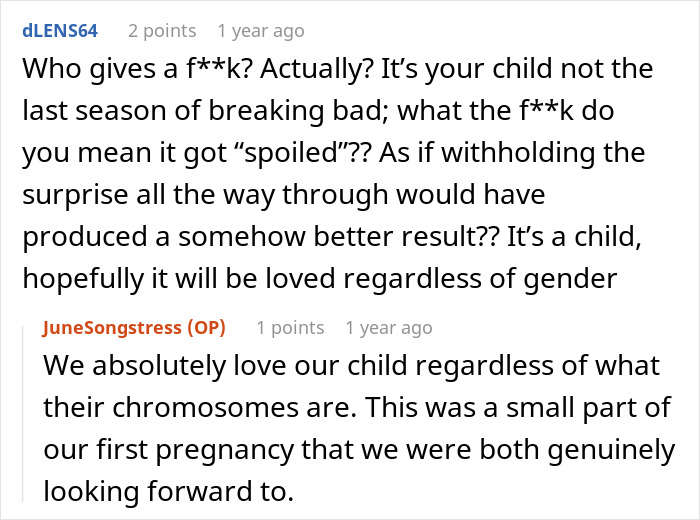
Many people felt this wasn’t an issue worth stressing about: “Just be thankful that your baby is healthy”
